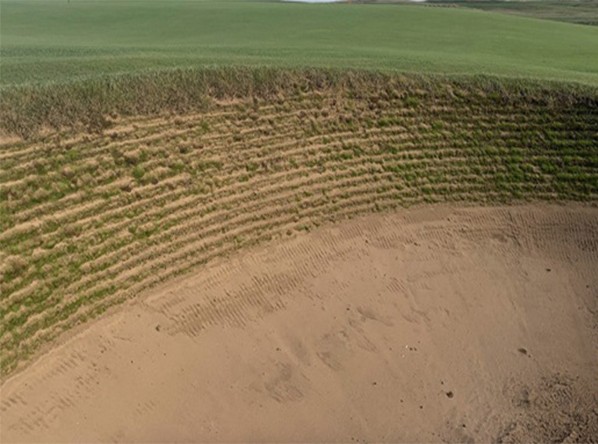Marshals are also called ‘course rangers’ and help manage the flow.
A “marshal” or “course marshal” is an individual whose duties generally focus on helping manage the flow around the golf course. The marshal’s specific duties, though, vary depending on whether the marshal is working during a golf tournament or during regular, recreational play at a golf course.
The marshal is often called a “ranger” or “course ranger,” and some facilities that are trying to act fancy might even refer to their marshals as “course ambassadors.”
Marshals are (infrequently) employees or other paid staff; more commonly, marshals are volunteers.

MARSHAL DUTIES DURING GOLF TOURNAMENTS
If you’ve ever watched a professional golf tournament on television, you have seen course marshals in action; even if you didn’t realize it at the time. Those people holding up the “Quiet” signs before a golfer hits her drive? Marshals. Those folks down the fairway looking for a golfer’s ball in the first cut of rough (and perhaps sticking a little flag in the ground near the ball to identify it)? Marshals.
Marshals at a golf tournament may wear armbands or some other means of identifying themselves to fans as well as participants. Fans can ask questions of a course marshal; a marshal might admonish a fan doing something they shouldn’t be doing, or help a fan who needs assistance; or direct spectators around the course.
Marshals at a tournament are helpers, aides, assistants to the players and spectators whose job boils down to helping things run smoothly.
And those marshals are almost all (probably all) volunteers. You – yes, you! – can be a marshal at a pro tour event, if you contact the tournament office in advance and sign up. Marshals may be used at pro events, high-caliber amateur tournaments, or even during a company outing or charity tournament at a local course.
MARSHAL DUTIES AT GOLF COURSES DURING REGULAR PLAY
A golfer who never attends a pro tour event or plays tournaments is most likely to encounter a course ranger at their own favorite local golf courses.
Not all golf courses have marshals, but many do. And if you compare two golf courses with the exact same amount of business, one of which has course marshals while the other one doesn’t, the one with marshals will have a better flow around the course. The pace of play will be better and – likely – the paying customers will be happier.
Local course marshals typically patrol the golf course in a cart that has “Marshal” or “Ranger” emblazoned on its front. They are almost always volunteers who work a few hours a day a few days a week and, in exchange, get free or at least reduced-rate golf on other days.
Duties? The course marshal’s duties typically include some or all of the following:
- Respond to golfers’ questions, requests, concerns;
- Direct golfers around the course, if they are unfamiliar with the layout;
- Inform golfers about course policies, and let a golfer know when he might be in violation of course policy;
- If the opportunity arises, help golfers search for lost balls (or gently suggest they give up the search to keep the pace of play going);
- Try to mediate any disputes that might arise between groups;
- Look for opportunities to care for the course, maybe repairing a ball mark here or filling a divot there;
- Most important of all, look for ways to help the pace of play.
All of which goes back to what we said at the top: A marshal’s duty is to help manage the flow of golfers around the course.
Some of the value in marshals is in their mere visibility. If golfers know a course has marshals, they are more likely to police themselves. Slow play is a primary concern for marshals, and some courses allow marshals to force slow groups to move up, skipping part or all of a hole in order to speed up play.
If disputes arise between groups of golfers or issues relating to pace of play or etiquette, those groups should seek out a course marshal to mediate.
Golf course marshals have no legal authority; as noted, they are typically volunteers. However, golfers should follow the requests and instructions of marshals, if a marshal offers such.















